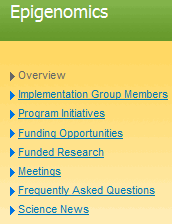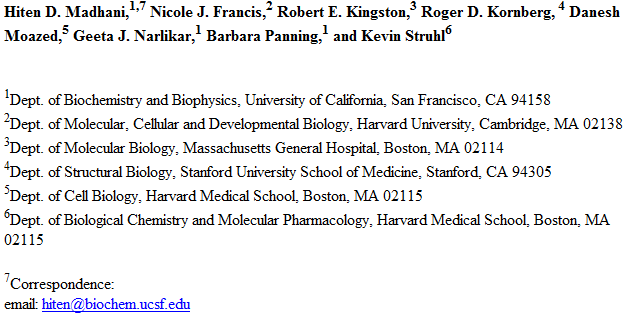
|
|
|
|
|
|
|
News & Views item - March 2010 |
![]() Flawed Top-down Scientific Directives Impact the Conduct of Groundbreaking
Research. (March27, 2010)
Flawed Top-down Scientific Directives Impact the Conduct of Groundbreaking
Research. (March27, 2010)
A letter in the "Correspondence" section of this week's Nature signed by three highly respected molecular biologists calls into question the scientific basis of the planned expenditure by the NIH (estimated to be near US$200 million) on the "epigenome project", and goes on to note a "letter signed by eight prominent scientists (not including us), and an associated petition signed by more than 50, [that] went into these matters in greater detail, and expressed serious reservations about the scientific basis of the epigenome project. A modified version of the letter appeared in Science (H. D. Madhani et al. Science 322, 43–44; 2008) — the complete letter can be found at http://madhanilab.ucsf.edu/epigenomics".
Here we just note the last paragraph from the "complete letter" as it has general applicability:
Finally, and most importantly, there is the larger issue of how such flawed top-down scientific directives impact the conduct of groundbreaking research in the United States. In the current atmosphere where funding for basic biomedical science funding is in crisis, the Epigenomics Roadmap Initiative is just one of many ill-conceived and wasteful big-science projects that are increasingly in fashion. Programs such as the Roadmap, center grants, innovation awards, etc. necessarily take away from the lifeblood of creative biomedical research, namely the investigator-initiated R01 grant mechanism. There is a notion favored by some that individual scientists need to be corralled to work together under a more rigid, directed framework to solve important problems. We disagree with this belief. Real innovation comes from the bottom-up, and, consequently, good science policy requires promoting the free market of ideas rather than central planning. The trend towards top-down programs thus represents a threat to truly exciting research, to the scientific community, and to the national interest. Arguably, some of the most groundbreaking discoveries in the modern era of chromatin and epigenetics research have been made by single, ground-up scientists moving his/her science forward to the best of their abilities. Those of us who sit on NIH review panels see creative and important research being turned away for funding round after round, further underscoring the need for action by policy-makers.
Signed:
